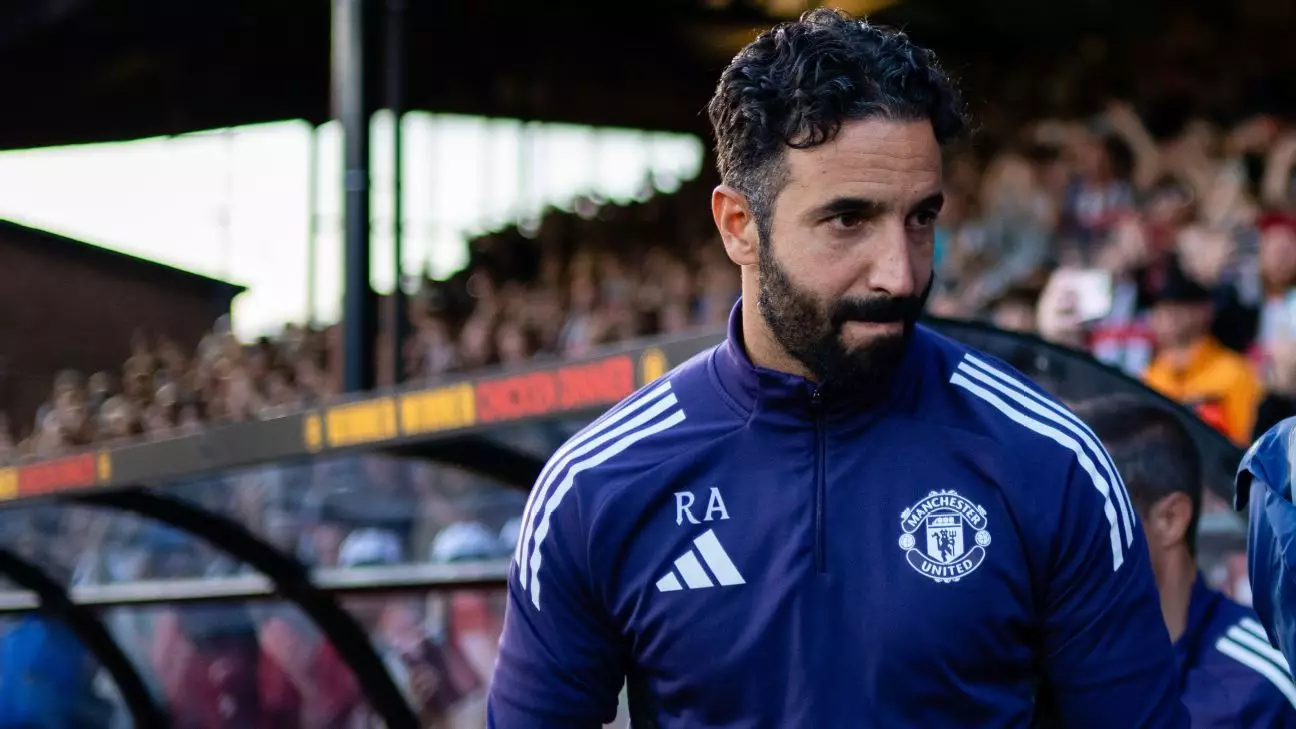Ruben Amorim’s recent remarks cast a long shadow over his future at Manchester United. Despite publicly asserting his intention to remain at the helm, the underlying insecurity in his words reveals a coach acutely aware of the mounting pressure. The unexpected loss to League Two’s Grimsby Town in the Carabao Cup was a jarring blow—not just a setback in the competition but a stark signal that the team’s confidence and cohesion are faltering. Amorim’s admission that he cannot guarantee longevity beyond the international break underscores a fragile stability that many are already questioning. His tentative stance suggests that, behind closed doors, the club’s hierarchy may be contemplating a change, making his current position precarious at best.
Performance Woes and Cultural Challenges
United’s inconsistent performances this season highlight deeper issues that Amorim publicly recognizes but seems powerless to resolve fully. After a narrow victory against Arsenal, expectations surged that the team would build momentum. Instead, subsequent performances—most notably the shock defeat to Grimsby and a lackluster draw against Fulham—exposed cracks in their form and mentality. Amorim’s comment that players are still haunted by last season’s 15th-place finish reveals a fractured dressing room, burdened with the ghosts of failure. This lingering mental scar appears to be manifesting as a lack of focus and unity on the pitch, which critics argue is indicative of a team lacking a cohesive identity and resilient spirit.
Leadership and Future Uncertainty
Amorim’s candidness about the possibility of quitting, juxtaposed with his desire to stay, paints a portrait of a manager caught between hope and resignation. His assertion that “I think it is not going to change” regarding his status, coupled with vague comments about future stability, feels more like a defensive stance than confidence. As the club faces rising expectations, fan unrest, and internal doubts, the manager’s words seem to be a calculated attempt to project composure amid chaos. The question is whether the club itself is ready to accept this uncertainty or if a decisive managerial change is looming on the horizon. If results don’t improve swiftly, Amorim’s position could swiftly turn from uncertain to untenable.
Implications for Manchester United’s Future
The broader implications of this tumultuous chapter extend beyond Amorim himself. Manchester United is a club in desperate need of clarity and direction, and their recent results suggest a team lacking stability. Amorim’s acknowledgment of internal struggles and his admission of the potential for departure reflect deeper issues within the club’s culture and leadership. The upcoming fixtures, starting with Burnley, are not just tests of performance but also of the club’s resolve to persevere through hardship or to reconsider their strategic approach altogether. Whether Amorim remains beyond this turbulent phase or becomes a victim of the club’s evolving dynamics, his tenure has become emblematic of United’s broader struggles to reclaim their former glory amid uncertainty.

